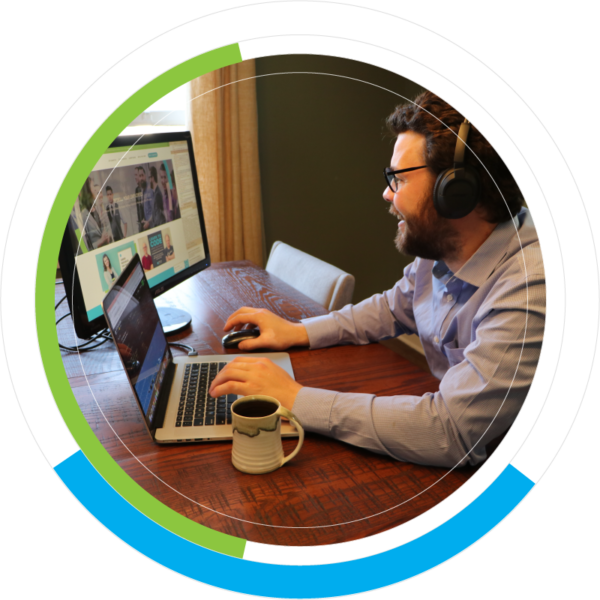Why You Should Consider a Coding Career: Busting the Myths that Keep Job-Seekers from a Career in Tech
By Kelly Brucker, Former Lead Pathway Program™ Director
Software developer jobs are some of the fastest growing in any industry—a trend that is projected to continue.
According to Communications ACM, “Prior to the pandemic, the U.S. Bureau of Labor Statistics (BLS) estimated that approximately 1,469,200 full-time software developers were working in the U.S. in 2019, earning an average salary of $107,510. Over the next 10 years, BLS estimates the U.S. labor market will add 316,000 software developer jobs, which is a phenomenal 22% growth rate, or an average of about 31,000 new jobs each year.”
It’s clear that a career in coding will be future-proof for years to come. That said, there are a number of myths around entering the field, which is why it’s important to do your research. Below, we’ve identified three myths we often hear around pursuing a new job in software development.
Myth 1: I need a college degree to enter the field.
Truth: A college degree is not required.
A college degree is not required to learn to code and land an entry level web developer job. In fact, using data from the U.S. Bureau of Labor Statistics and PayScale, Monster placed web developer and computer programming jobs on a list of the highest paying jobs without a degree. Additionally, according to a study done by the University of Iowa, of those who apply to get a particular job, years of education does not predict future performance on that job very well. This means that those interested in learning to code could do so in less time than it takes to acquire a college degree, and they will be a strong asset to a future employer.
Myth 2: Entering the field will take a lot of time and money.
Truth: You can enter the field in as little as 14-weeks for far less than the cost of a college education.
One way to enter the field quickly is through a coding bootcamp. Coding bootcamps usually cost significantly less

than a four-year computer science degree, but they vary in what you get for that price. For example, you can attend web development courses and learn html, but if your goal is to become a software developer, you’ll need to learn both frontend and backend technologies (known as full stack web development) in your foundation as a coder. If a bootcamp only focuses on one area, your job options after graduation will be limited.
Additionally, one key question to ask is how a coding bootcamp will support your career goals and help you secure your first job. At Tech Elevator, many of our students credit our Pathway Program as one of the most important aspects of the bootcamp experience. It runs parallel to the coding bootcamp and focuses on developing career readiness skills with sessions on elevator pitches, resume/interview prep, and networking; it also follows graduation with 6 months of career support.
Myth 3: I have no coding experience and my past career skills will be useless.
Truth: Software development takes a wide range of soft skills.
Your previous professional skills can relate directly to a career in tech; for example, past Tech Elevator Coding Bootcamp students come from a wide range of professional backgrounds including retail, the service industry, sales, and marketing. Additionally, a coding career can be a good fit for people who enjoy solving problems, building things, and collaborating with others.
How to see if this field is right for you:
Test your aptitude!
Do you have aptitude for software/web development? A coding career can be a good fit for people who enjoy solving problems, building things, and collaborating with others. Take our free Aptitude Test to see if you have what it takes to become a web developer, no coding required.